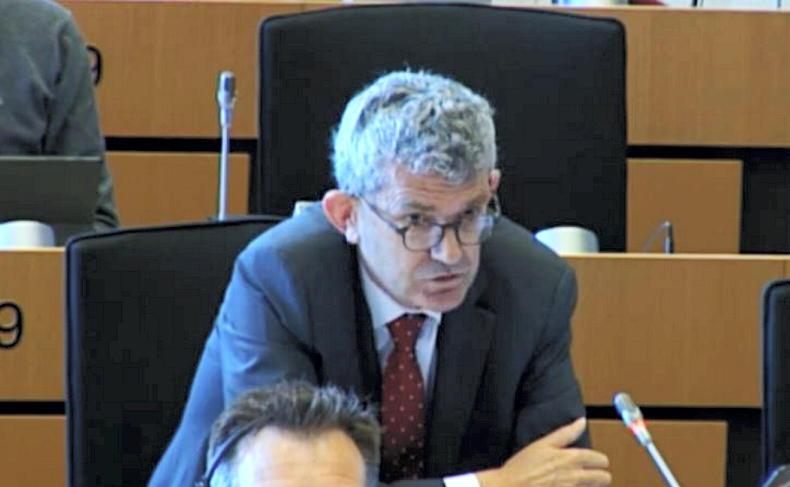The deputy director at the European Commission’s DG Agriculture has rejected the suggestion that the Farm to Fork strategy would outsource food production.
In an interview with the Irish Farmers Journal ahead of next week’s ASA conference, Michael Scannell acknowledged the recent EU report that highlighted the risk of reduced production but pointed out that science, technology and innovation will play a role in future output from farming.
Priority
He also pointed out the priority that the EU places on food security and that a communication (EU equivalent of a white paper) on food security would be published in the next couple of months.
It is also a huge priority for France, which takes over the EU presidency for the first half of 2022, he added.
Imports
On the issue of Brazil proposing to expand beef production over the period that the EU will be implementing Farm to Fork, Scannell said: “The Commission is sensitive on imports and it is widely accepted within the Commission that EU ambitions on climate and the environment cannot be undermined by trade with partners that have less ambition.”
Scannell also cautioned against exclusive focus on production and said that value was perhaps even more important
When asked about why the EU hasn’t included agriculture in the Carbon Border Adjustment Mechanism which protects other sectors, he said that it is the EU belief that there is sufficient protection in place through existing mechanisms and that these tools need to be used sparingly, especially with the increasing level of agricultural produce begin exported to the rest of the world.
Scannell also cautioned against exclusive focus on production and said that value was perhaps even more important with “farmers getting a bigger slice of the existing pie being better than having a bigger pie worth less”.
The more value that is added to agriculture and achieving exclusivity will, in the long run, best serve farmers’ interests and the EU’s PGI model is a way to do this, he said.
Mercosur
On Mercosur ratification, the issue, Scannell believes, is Brazil delivering on its commitments on climate change mitigation measures which are contained in the agreement.
Any member state opposition to Mercosur is centred on this rather than the level of access in the agreement for agricultural produce, he said.






 This is a subscriber-only article
This is a subscriber-only article










SHARING OPTIONS: